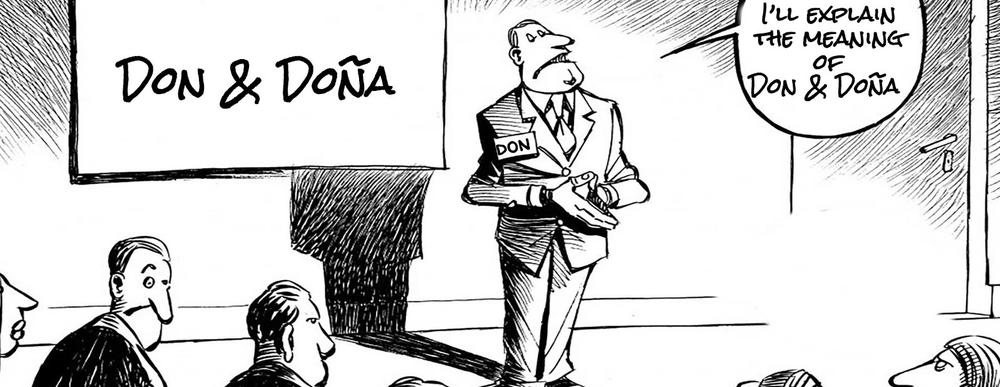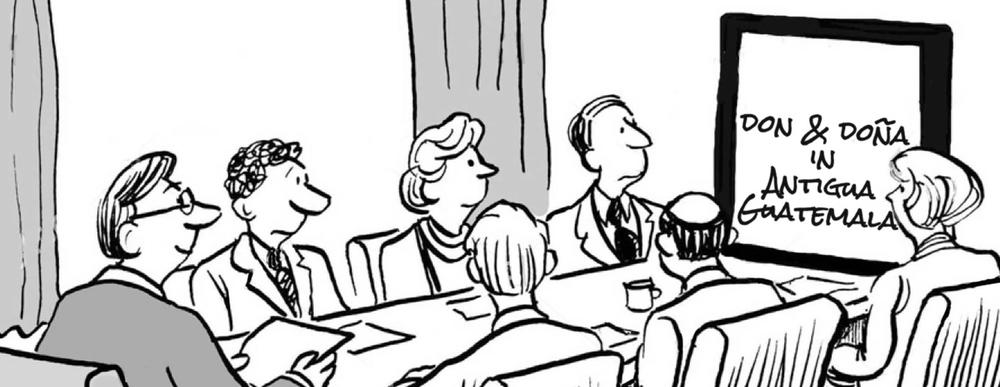Posted on Nov 05, 2018 |
If you have visited Antigua Guatemala to learn Spanish language, you have probably noticed that Don and Doña are words that are used a lot as part of protocol when talking or referring to someone to show respect and courtesy, no matter the age or gender. It is part of the "popular language" of the Latin culture.
It is similar to Mr and Mrs (Señor & Señora), but Don and Doña has a small difference, is a title of respect that only comes before the first name, sometimes for the full name (first name, followed by last name), and never for the last name only. Commonly used today when addressing senior people. For example, you would use Don Julio; or Don Julio Garcia. If you were to refer to someone using just his/her last name, then you have to use Señor instead (Sr Garcia).
The origin of this word comes from the latin Dominus (which is translated as owner or Sr). In Spain, this was considered a title, reserved only for the royalty or a noble. The treatment gradually changed; at the verge of 19th century and beginning of the 20th, people with means (economically powerful) or with a recognized education level (regardless of the background) came to be addressed as Don or Doña.
Don or Doña is a honorific title today across of all latin-american culture, just like explained above, you should only use it before the first name or full name (first and last name). In the old times, just like today, referring to someone as Don/Doña before the last name is considered as an underestimation.
Today, in Guatemala and in Latin America, using this honorific title (Don & Doña) is common for most people. Regardless of any cultural or economic background. It is way to show respect.
This title today is applied for different reasons:
1- To show respect, either for a economic or social status, experience or personal achievements.
2- To show good will to someone, especially if that person has a higher social status.
3- Someone with a higher education degree.
4- To elderly people.
It is important to mention that this treatment or title is used in towns (with inhabitants of more traditional culture, such as Antigua Guatemala). While in more modern cities, this title is much less common, since the use of Mr. or Mrs. is preferred.
Don Nadie - no culture and no money
There is also a well-known expression that uses the title of Don to undervalue another person. Saying "That's a Don Nobody" (Es un Don nadie) is a disrespectful way of pointing out a person with a poor economic and cultural condition.
So dear students, now you know a little more about Spanish language culture for Antigua Guatemala and Latin America in General.
Latest Posts
-
Easter Week 2025 Schedule Processions Antigua Guatemala
- Mar 02, 2025 -
Ten Beautiful Words in the Spanish Language
- Jul 13, 2024 -
Easter Week 2024 in Antigua Guatemala
- Feb 04, 2024


